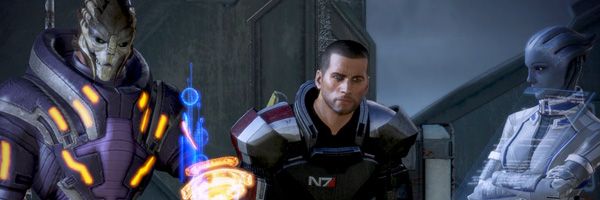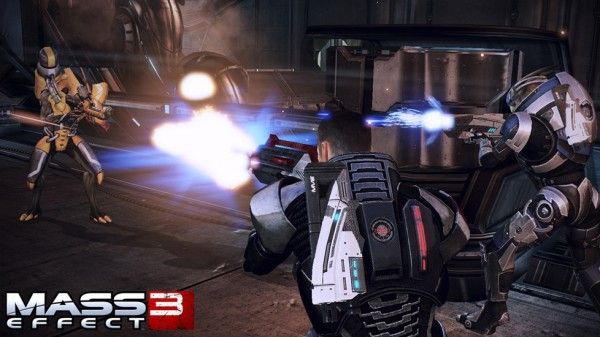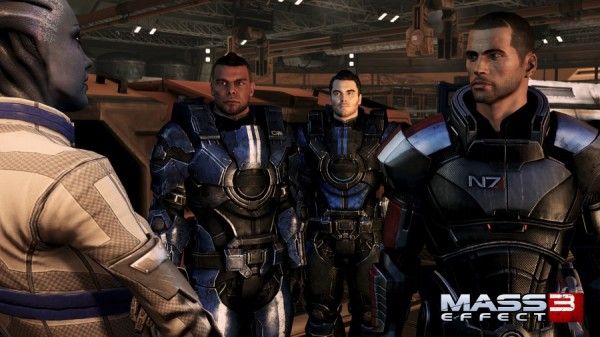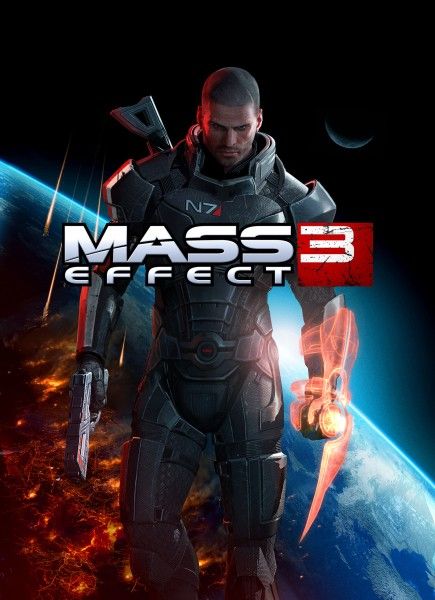Mass Effect is one of the most ambitious video game series of all time, a sci-fi opera that allows you to build a character over the course of three sprawling games as you come into contact with countless other characters. While it should have been a given that the conclusion to this story would arouse some controversy, I doubt even BioWare, the developer behind the games, was prepared for the onslaught they received shortly after Mass Effect 3 was released.
[Spoilers ahead for Mass Effect 3]
In case you need a refresher, here’s how Mass Effect 3 ended before it was patched and refined by BioWare.
You encounter a childlike A.I. on the Citadel, and it informs you that you have basically created your own downfall. The Reaper cycle is meant to take the best organic races, harvest them into new Reaper forms, and then make way for new, lesser organic life to evolve. The ultimate goal is to find a balance between synthetic and organic life. You are then given three choices: You can control the Reapers, you can destroy the Reapers and all synthetic life, or you can merge all organic and synthetic life.
None of the choices are all that appealing. If you control the Reapers, you’re essentially working with the bad guys of the franchise. If you destroy the Reapers, you’re also committing genocide against synthetic life (poor Legion!). If you merge, you essentially force all life everywhere to either take on organic components or synthetic components. It’s the “right” choice for the game, but it still feels a bit uncomfortable and inadvertently highlights the dictatorial power of being the one who saves the galaxy.
After fan outcry, BioWare released an “extended cut”, which better explains what each choice means and how they affect the galaxy as well as your crew. It doesn’t quite solve the problems presented with the ending, but it at least provides some more clarity.
While the ending received most of the attention, I would argue that Mass Effect 3’s problems begin long before you reach the final choices. The biggest problem with Mass Effect 3—aside from combat that eventually feels like you’re playing Gears of War—is that Mass Effect 2, the best game in the trilogy and one of the best video games of the 21st century, essentially painted the developers into a corner.
Mass Effect 2 did something really interesting with its conclusion. In the climax of the game, any member of your squad and even the protagonist, Shepard, could permanently die. In order to prevent this outcome, you needed to do loyalty missions throughout the game and then make sensible choices at the climax. Essentially, Mass Effect 2, more than the first game, was built around character relationships so that by the time the game ended, you were invested in every single supporting character. For example, on my first attempt at the final mission, I lost Thane, so I replayed it to find a way to save him (and succeeded!).
However, this investment created a programming problem for Mass Effect 3. There was pretty much no way for the final game in the franchise to adapt to your choices regarding who lived and who died. There would be too many variables. So the developers pared things down and made Garrus and Talia the only returning members to your squad. Everyone else, assuming they survived, popped up as NPCs and the rest of the playable characters were either Kaidan/Ashley (depending on your actions in Mass Effect 1) and Liara, who you didn’t bond with in Mass Effect 2, and total rando James Vega.
Mass Effect 3 essentially made two major errors. It downplayed the investment you made in Mass Effect 2 by being unable to incorporate characters you embraced over the course of that game, and it reduced the amount of character interactions overall. Mass Effect 3 is a plot-driven game, and while that makes some sense given that it’s the concluding chapter of the trilogy, it doesn’t really work when a large part of the game’s appeal is character interaction. I care about Shepard because I’m choosing his/her dialogue and actions. It goes beyond a simple avatar and into a character I’m creating. BioWare lost sight of that as they tried to wrap up the story.




